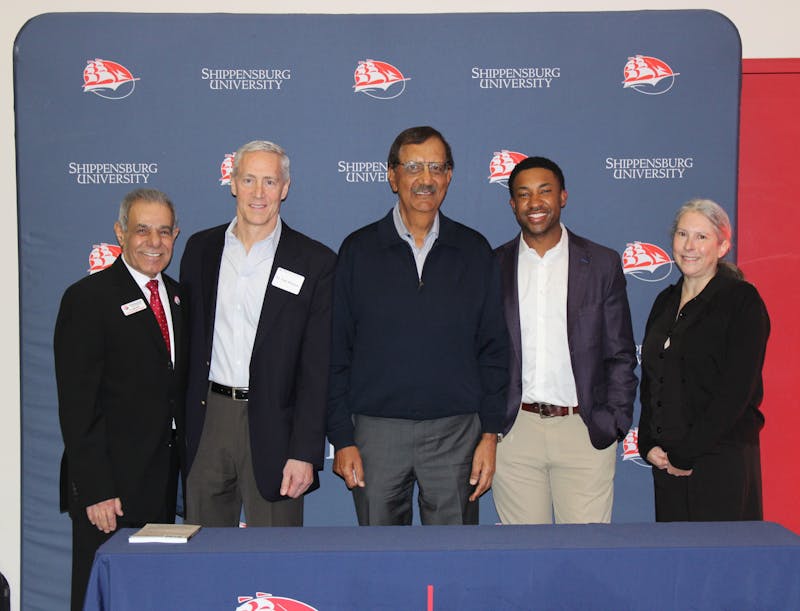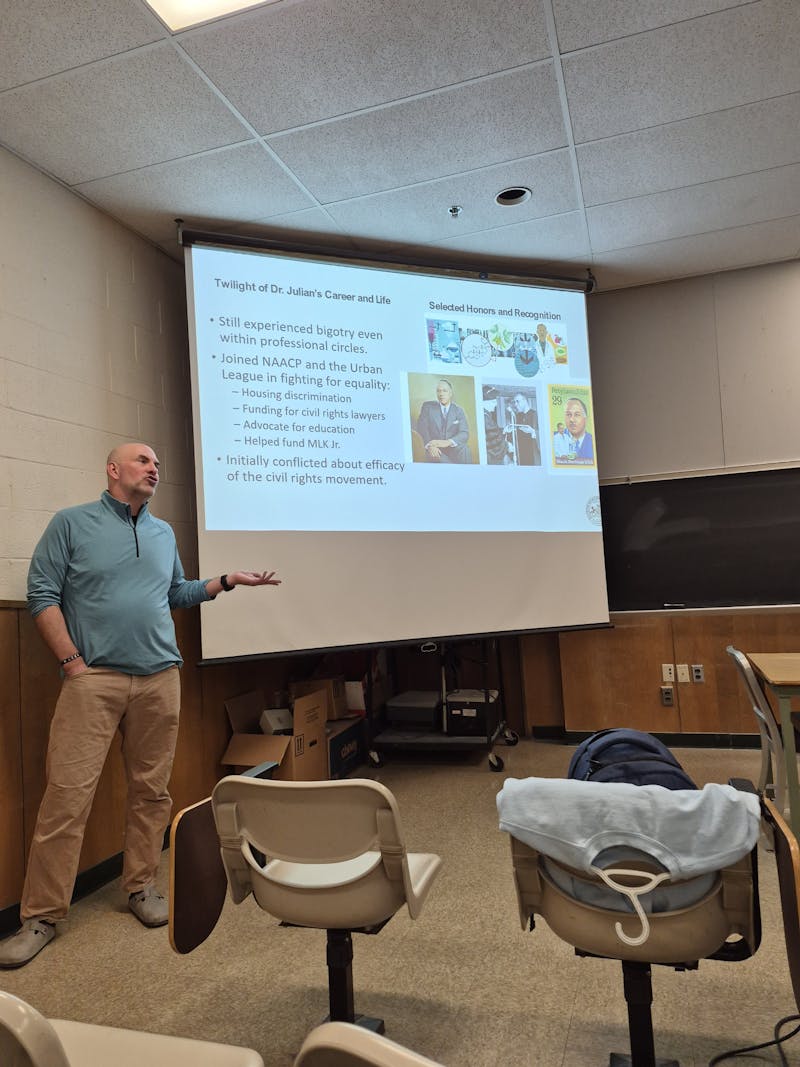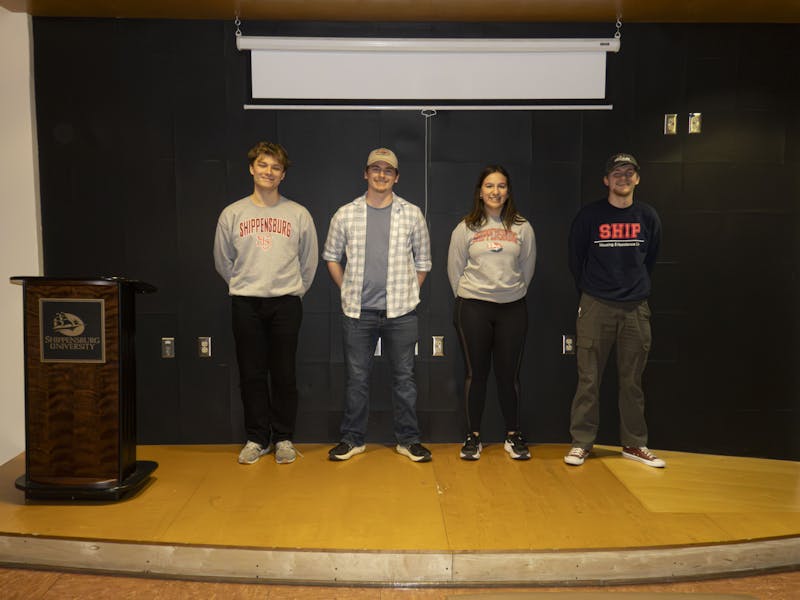It may be 148 years since the constitutional abolition of slavery in America, although today, in the US and abroad, sex and labor trafficking are still serious issues.
SU senior Cheryl Hershey, a social work major, spoke about human trafficking to a group of students and faculty on Tuesday, March 5, as a part of the annual Day of Human Understanding.
Hershey, who has visited Lithuania, East Asia and California for research and advocacy, began by standing in front of a screen that displayed the question, “Did you know slavery still existed?”
Hershey answered this question by explaining that internationally 27 million people are enslaved, more than during any time of the Trans-Atlantic slave trade. In the U.S., 300,000 people are forced into labor or sex trafficking each year.
Hershey’s findings have concluded that locations that lack a proper social safety net, suffer from poverty and have a high demand for labor are the key locations in which trafficking thrives.
During times of chaos, such as earthquakes or hurricanes, there is a greater possibility for trafficking to occur without warning.
Hershey also spent time talking about the effects of improper home care. According to her, girls ranging from 12 to 14 years old are those most likely to be trafficked — many of whom suffered from sexual abuse as small children.
“Anyone can be trafficked. However, victims most at risk are those who do not have people invested and caring for them,” Hershey said.
Hershey said 80 percent of people currently being trafficked are females. Several organizations have been established to help these young ladies, such as GEMS Girls, the International Labor Rights Forum and Made in a Free World.
Hershey has been involved with several organizations, most notably Not for Sale, a group which focuses on prevention.
“It’s looking at what you can do to prevent trafficking and not going to save individual girls,” Hershey said.
Hershey invited the audience to become involved in putting an end to labor and sex trafficking through watching what they buy and downloading apps such as Free to Work and Slavery Footprint, which allow users to track the supply chain of various products from production to store.
“What we can do is tell companies who are using slave labor to stop, because it’s not OK,” Hershey said.




The Slate welcomes thoughtful discussion on all of our stories, but please keep comments civil and on-topic. Read our full guidelines here.